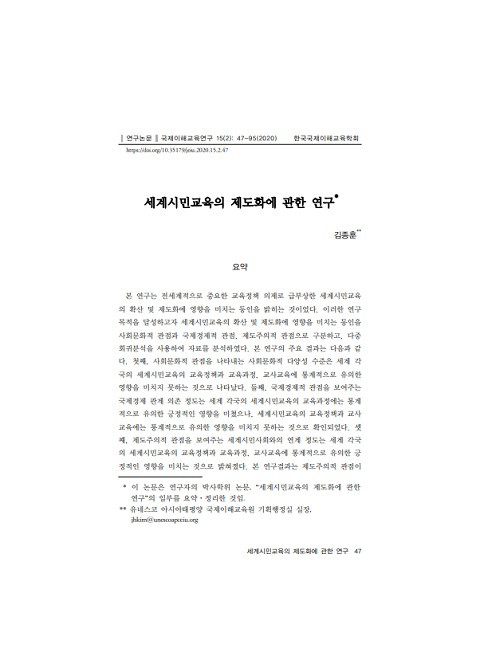
GCED Basic Search Form
Quick Search
You are here
Resources

The purpose of this study was to examine the driving forces that affect the global diffusion and institutionalization of Global Citizenship Education (GCED), which is rapidly emerging as an important global education agenda. In order to achieve the objective of this study, driving forces affecting the diffusion and institutionalization of GCED were categorized into three perspectives, namely, sociocultural perspective, international economic perspective and institutional perspective. The data were analyzed using multiple regression analysis. The main findings of this study are as follows. First, the degree of sociocultural diversity that represents sociocultural perspective did not have a statistically significant effect on education policies, curriculum and teacher education on GCED in each country. Second, the degree of dependence on international economic relations, which shows international economic perspective, had a positive statistically significant effect on the curriculum of GCED in countries around the world but it did not have a statistically significant effect on education policy and teacher education of GCED. Third, the degree of linkage to the global civil society that represents institutional perspective has a positive statistically significant effect on the GCED education policies, curricula and teacher education of different countries around the world. The results of this study show that institutional perspectives are more persuasive drivers of the spread and institutionalization of GCED in individual countries than from sociocultural perspective and international economic perspective. The result of this study shows that the adoption of policies for GCED is an institutional embodiment reflecting education norms and values at the global level embedded in an institutional environment of the world society rather than instrumental means that meet immediate and concrete socioeconomic needs and demands of individual countries. This study is of significance in that it has identified the driving forces for the diffusion and institutionalization of GCED through empirical analysis.
